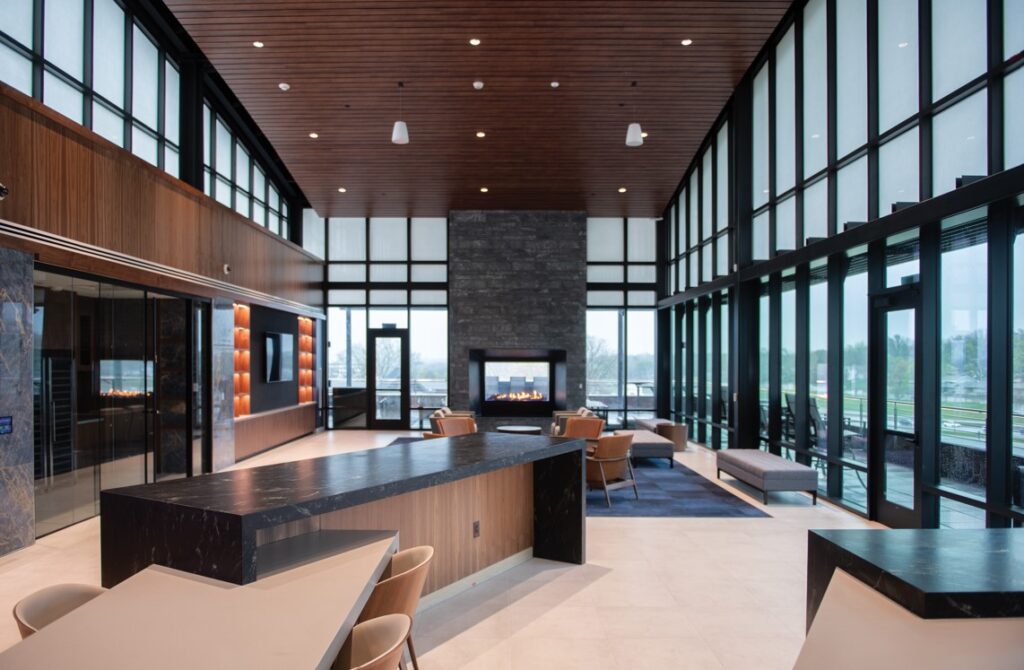Iowa historic preservation projects honored

BUSINESS RECORD STAFF Jun 19, 2020 | 8:30 pm
2 min read time
473 wordsAll Latest News, Real Estate and DevelopmentFourteen historic preservation projects were honored recently during the annual Preserve Iowa Summit, the Iowa Department of Cultural Affairs announced.
The awards were given to projects completed between July 1, 2018, and June 30, 2019.
“These outstanding properties give communities a unique sense of pride and place,” Chris Kramer, director of the Iowa Department of Cultural Affairs director, said in a prepared statement. “The adaptive reuse of these iconic buildings is a creative and economic way to revitalize an entire neighborhood.”
The state recognized four projects, and Preservation Iowa, a nonprofit group, presented 10 additional awards. Projects recognized by the state are:
Fort Des Moines in Des Moines. The project received the William J. Wagner Award for a project best exemplifying federal standards for historic rehabilitation. Fort Des Moines was established in 1901 as a military base and training facility, where the nation’s first African American officers graduated during World War I and the country’s first Women’s Army Auxiliary Corps trained during World War II. Blackbird Investments rehabilitated the abandoned National Historic Landmark, turning four barracks and two stables into a neighborhood for low-income families.
Kuba House in Cedar Rapids. The project received the Judith A. McClure Award for a residential property. Save Cedar Rapids Heritage, a nonprofit group, saved the 1894 house from demolition. Originally built by Bohemian immigrants John and Josephine Kuba, the house was relocated and rehabilitated to become an affordable home for a new family.
Monroe Elementary School in Cedar Rapids. The project received the Margaret Keyes Award for a large preservation project. The Mid-Century Modern elementary school, built in 1961, now comprises a mix of apartments. The Affordable Housing Network of Cedar Rapids guided the project, which minimized subdivisions to honor the existing building’s footprint and essential characteristics.
Paulson Barn in Ogden. The project received the Adrian D. Anderson Award for a small historic preservation project. The 1908 barn was built to house dairy cows and draft horses. Owners Margot and Gregory Hodges-Tinner hired local crews to straighten the barn’s frame, repair and paint its board and batten siding, and fix its roof, which now shelters a new generation of dairy cattle.
Projects recognized by Preservation Iowa are:
Principal Financial Group’s office building at 711 High St. in Des Moines, which was recognized as Best Sustainability Project; Brucemore mansion in Cedar Rapids, Best Community Effort; Coffee on the River, a 1868 Lansing grain elevator, Best Small Commercial Project; the Forge, a former Odd Fellows meeting hall near Jefferson, Best Large Commercial Project; Graceland Cemetery Chapel in Avoca, Best Rural Preservation Project; Hotel Maytag, built in 1927 in Newton, Best Multi-Residential Preservation Project; Lauridsen Opera Center in Indianola, Best Adaptive Use; “Le Mars, Iowa: A Pictorial History, 1869-2019,” Best Special Project; Simmons House in Ottumwa, Best Personal Residential Preservation Project; and Winneshiek County Courthouse in Decorah, Best Public Project.







